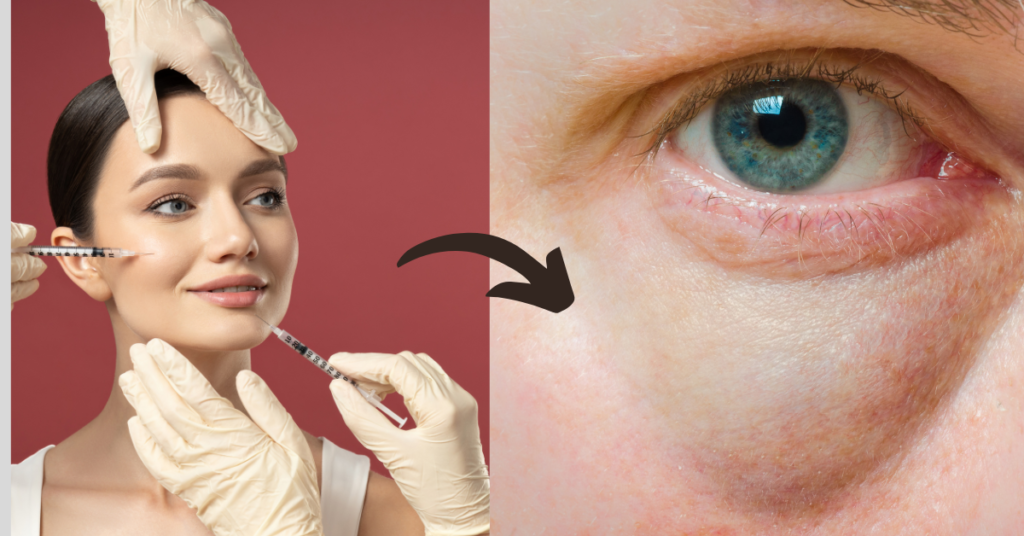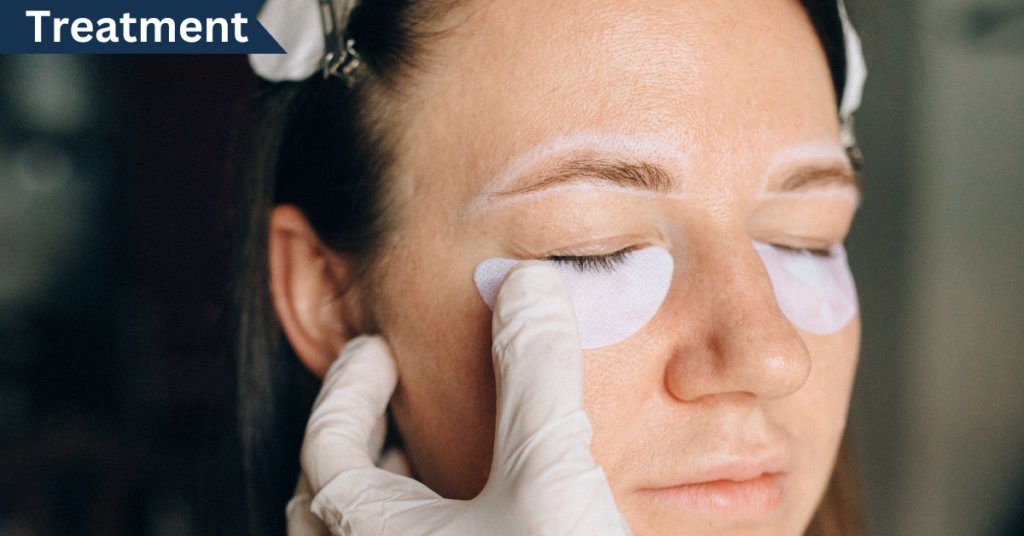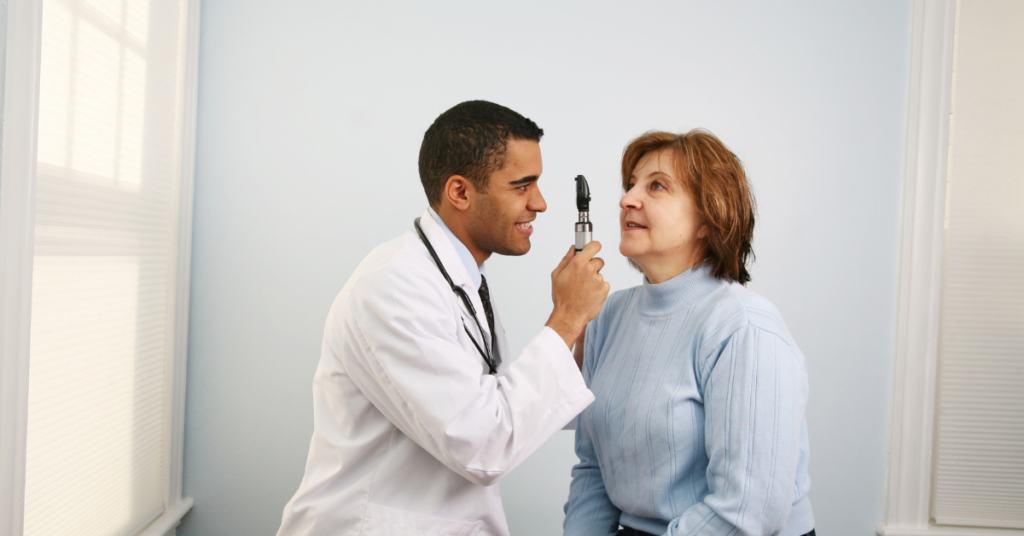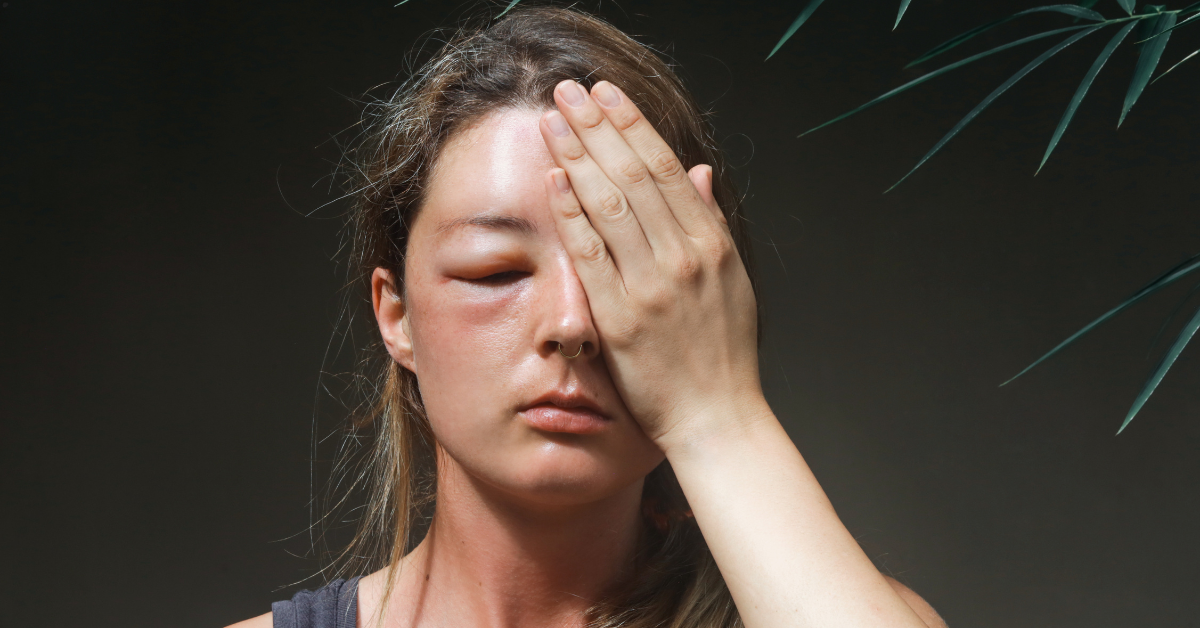Botox is a common procedure that helps people look younger and refreshed by reducing wrinkles and fine lines. While it’s usually safe and effective, some people have negative side effects, and swollen eyes are among the most prevalent. After receiving Botox, you might wonder why you have puffiness around your eyes and how to deal with it. This article will discuss how to avoid and treat as well as their causes and duration.
Table of Contents
What is Botox?
Allow me to explain what Botox is and how it works before proceeding to discuss the reasons that people may have puffy eyes following this procedure.
Botox is of clinical name for the botulinum toxin, which originates from a bacterium popularly known as Clostridium botulinum. Botox works when the scientist injects a small amount of it in the targeted area, stopping the muscles from contracting for a short time. This aids in the removal of lines, creases, frown lines, and crow’s feet that are found on the forehead, eye area, and between the eyes respectively.
Why Do Puffy Eyes Occur After Botox?

Though Botox is a great treatment, it has some side effects that are worth knowing about. Swelling of the eyes is one of the complications that people undergo always, especially after Botox treatments. The appearance of puffiness can be due to several causes.
Temporary Reaction to the Injections
When one takes Botox, the needle is administered right into the skin though it may at times trigger a minor effect. This reaction may cause edema or swelling of facing features, particularly around the eyes.
Botox Migration
Another root of the swelling of the eyes after Botox is Botox migration The most common discomfort associated with Botox injections is puffy eyes. This is seen when the Botox spreads from the area that was administered with the substance to an adjacent muscle.
Overuse of Botox
Sometimes, with Botox, it can be abused, especially around the eye region. If the amount of Botox administered is high it can paralyze the muscles around the eyes, and to an extent, they end up being too weak. This can make you feel something “peculiar” or “heavy” around the eyes or lead to swelling of the face especially around the eyes.
Sensitivity to Botox
Small doses and repeated touch-ups also yield more brusque reactions and will cause people with sensitive skin or muscles to balloon more easily after receiving Botox.
Allergic Reactions or Infections
Allergic reactions or infections could also lead to swellings around the eyes and are best dealt with by a medical practitioner.
How Long Does Puffy Eyes After Botox Last?
“How long will this last?” is one of the most frequent queries individuals have following Botox treatment for puffy eyes. The puffiness is usually transient and goes away in a few days. This is a broad timeline:
- Mild Puffiness: Mild swelling is normal with restored normalcy in 24-48 hours after the Botox treatment in most cases.
- Moderate Puffiness: For those with mild swelling, it should last for about 3-5 days depending on your body’s response to the Botox.
- Severe Puffiness: Sometimes, it can take a day or so, at most, three to five days, for the puffiness to reduce, but in rare instances can take a little more than a week. Swelling that is severe or painful needs the attention of your doctor so that necessary action can be taken.
If your puffy eyes last more than a week or worsen over time, you should schedule an appointment with your doctor to rule out other causes or complications.
Managing Puffy Eyes After Botox

If you notice puffiness around your eyes after Botox, there are several steps you can take to reduce swelling and speed up your recovery.
Apply a Cold Compress
Swelling is very easy to manage by using a cold compress on the affected area of the body. They also include the use of a cold cloth or an ice pack where the skin is puffed up by wrapping it on a thin cloth before applying it to the affected skin.
Avoid Rubbing or Touching Your Eyes
Some things that are not allowed after undergoing Botox include rubbing the area of the eyes. Any pressure pushed towards the face can cause the swelling to worsen and might even lead to the Botox spreading even further.
Elevate Your Head
If you are laid down or resting, use several additional pillows to raise your head position. This will minimize the tendency of fluid accumulating near the face and around the eye area and hence minimize swelling
Stay Hydrated
This process is efficient hence it can help your body to recuperate from the Botox through fluid intake. It is necessary to avoid drinking much water and make sure your body swells because drinking a lot of water aids your body, to recover fast from the swelling.
Avoid Heat and Intense Exercise
Immediately after giving yourself Botox, it’s recommended that you try and avoid any activity that increases blood flow to the face, such as hot showers or saunas and vigorous exercise for the first 24 to 48 hours. Swelling is another issue people often encounter during heat and when they overheat and sweat.
Follow Your Doctor’s Instructions
However, each time you get a Botox injection, your doctor may have particular instructions that he or she wants you to follow on how to take care of your skin afterward. I encourage you always to obey their directives to the letter.
Preventing Puffy Eyes After Botox
While some degree of swelling and puffiness is normal after Botox, there are things you can do to reduce the chances of it happening.
Choose an Experienced Practitioner
One of the best ways to prevent complications such as puffy eyes is to select a good experienced injector. A professional injector will also understand where or how to inject Botox so that side effects can be avoided to the greatest extent.
One of the best ways to prevent complications such as puffy eyes is to select a good experienced injector. A professional injector will also understand where or how to inject Botox so that side effects can be avoided to the greatest extent.
Follow Pre- and Post-Treatment Guidelines
Your doctor will give you advice on matters that you need to do before the treatment and after the treatment. The following are the instructions that have been provided to assist you get the best outcomes of Botox and avoid complications.
Communicate Any Concerns
If you have had Botox earlier and you faced the problem of puffiness then do not hesitate and tell your doctor. He may be able to alter the approach or utilize fewer volumes of Botox so that there will be no swelling experienced.
When Should You See a Doctor?

Although puffiness is usually temporary, there are cases when it’s important to see a doctor:
- If a week passes and the swelling doesn’t go down.
- If you have both puffiness and pain or discomfort.
- Whether the area surrounding the eyes is hot, red, or infected.
- If your vision seems affected or you have problems seeing.
If you experience any of these symptoms, it’s important to contact your healthcare provider right away to ensure there are no complications.
Conclusion
Following Botox, puffy eyes are a frequent and mostly transient adverse effect. The puffiness usually disappears on its own in a few days. You can remain composed and take advantage of the advantages of your Botox treatment if you know why this side effect occurs and how to handle it. Before or after your treatment, always follow your doctor’s recommendations and let them know if you have any concerns.
In general, Botox is a safe and successful surgery, and you may reduce the chance of side effects like puffy eyes by taking the right precautions. Do not hesitate to contact your physician if you have any worries or if your puffiness persists longer than anticipated.
Related Post: 20 Units of Botox Before and After
How can I speed up the recovery from puffy eyes after Botox?
Use cold compresses, drink plenty of water, and refrain from physically demanding activities that can exacerbate the swelling to hasten the healing process.
When should I be concerned about puffy eyes after Botox?
See your healthcare practitioner for guidance if puffiness lasts longer than a week, gets worse over time, or is accompanied by discomfort or other odd symptoms.
Can Botox cause eyelid puffiness or drooping?
Temporary eyelid swelling or drooping may occasionally result from Botox, particularly if the injection extends beyond the intended location. However, this should go away with time.
How long will the puffiness last after Botox around the eyes?
Usually lasting one to two days, puffiness around the eyes can remain a little longer in certain circumstances if there is significant bruising.

